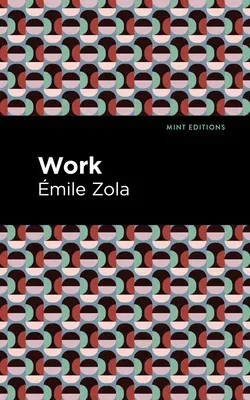Work (1901) is a novel by French author Émile Zola. Published as the
second installment of his Les Quatre Évangiles, a series of four
novels inspired by the New Testament gospels and aimed at investigating
prominent social issues, Work was the last of Zola's novels to be
published during his lifetime. Combining his trademark naturalist style
with an interest in Charles Fourier's theory of socialist utopianism,
Zola crafts a story of hardship and perseverance without losing sight of
humanity. Luc Fremont, an engineer, travels to a town at the heart of an
important French industrial region. While staying in Beaumont, he is
struck by the widespread poverty suffered by the working class, the very
people whose expertise and labor is essential to the economic health of
the nation. Calling upon an old friend, who owns a local steelworks, Luc
enters into a deal in order to manage the production of La Crêcherie
under an experimental cooperative model. With his determination and the
hard work of the people, Luc establishes the steelworks as a functioning
independent city-state, known for its profit-sharing, free housing, and
focus on the lives of its workers and their families. As news of their
success begins to spread, similar experiments take place across France
and the globe, harnessing the transformative power of industry for the
sake of people, not profit. With a beautifully designed cover and
professionally typeset manuscript, this edition of Émile Zola's Work
is a classic work of French literature reimagined for modern readers.


